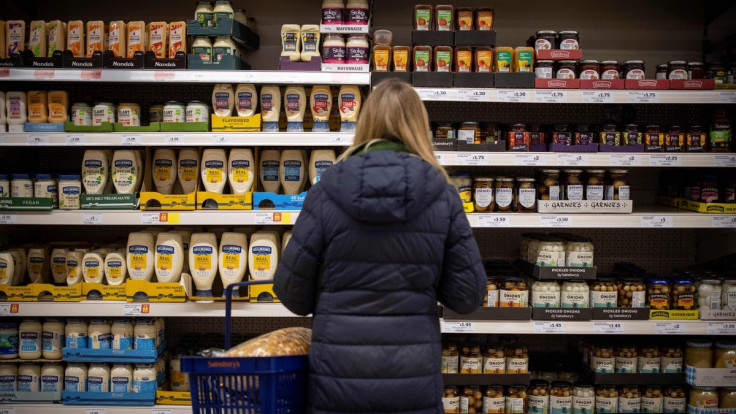Britons increasingly hungry, isolated because they cannot afford food: report
There has been a 14.6 percent increase in food prices in the UK in the year up to June.

More than 11 million people in the UK faced hunger in the past year, according to research conducted by the food bank charity Trussell Trust. It found that one in seven people in the country are going hungry because of high food prices. In fact, people have begun to avoid social gatherings due to the costs associated with them.
The report added that the worst affected have been people with disabilities, single parents, and people living alone.
The Trussell Trust is the biggest provider of food banks in Britain. It conducted a survey between May and August last year for its report. Its analysis shows how the ever-rising cost of living has hit Britain's poorest households hard.
"We need a social security system which provides protection and the dignity for people to cover their own essentials, such as food and bills," The Independent quoted the chief executive of the Trussell Trust as saying.
Another study by the Institute of Development Studies (IDS) at the University of Sussex has revealed that around 14 per cent of the UK population is suffering from food poverty, per a report in Barrons, an American weekly newspaper.
"Access to food in the UK is very inequitable, and we believe that more attention needs to be placed on overcoming these inequities than simply focusing on increased food production through ever more industrialised agriculture," said IDS director Melissa Leach in a statement.
There has been a 14.6 percent increase in food prices in the year up to June. The prices may further increase around October as companies will have to pay charges for importing food and other products from the European Union countries.
The new checks on EU imports could add around £400 million a year in extra costs, according to a report in The Independent.
The cost-of-living crisis:
The inflation rate in the country stood at 8.7 percent in the month of May, per the data provided by the government. The rising inflation has had an effect not just on food prices but on rents and mortgage rates as well.
Several businesses have failed to provide even the minimum wage to their employees. Companies like WHSmith, Lloyds Pharmacy, Marks and Spencer, Chanel, Dune, Oxford United Football Club, Virgin Active, and Twenty-Four Seven Recruitment Services have all come under scrutiny for failing to pay the minimum wage to their workers.
A recent report by Age UK and the Pensions Policy Institute has highlighted the effect of the cost-of-living crisis on people's retirement plans. More and more workers are putting off their retirement plans due to high inflation.
The report has described this phenomenon of people postponing their retirement plans as the great un-retirement, as the number of people out of the labour market has reduced compared to last year. Nine months ago, 1.196 million people under the age of 65 (the retirement age) were retired. Instead of increasing, that number has lowered from February to April.
This clearly indicates that more and more people near the age of retirement are choosing to work in order to bring food to the table. While common citizens are struggling to put food on their tables, there are people who have managed to grab a large chunk of the profits generated within the country.
An Oxfam report has claimed that the richest 1 per cent have grabbed around half of all new wealth created globally since 2020. In the UK, this small section is wealthier than 70% of the population combined.
The report comes at a time when 3.9 million children are living in poverty in the UK and 6.7 million households are struggling to heat their homes. In the UK, 59 per cent of inflation was driven by increased corporate profits.
© Copyright IBTimes 2025. All rights reserved.






















